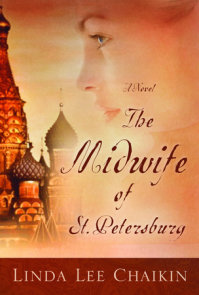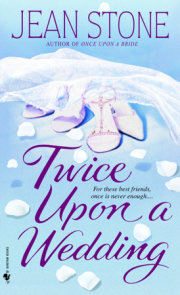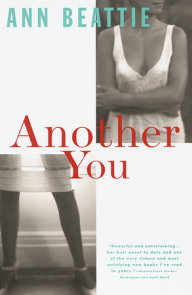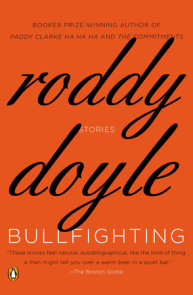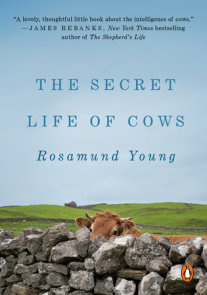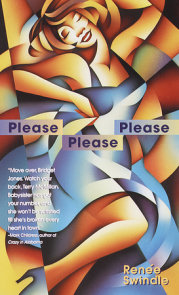READERS GUIDE
Questions and Topics for Discussion
1. When the novel opens, Opal is truly "Entering Normal." What is the significance of the novel’s title? What is Opal’s sense of the town, in contrast to the viewpoints of Rose and Ned? Is the locale aptly named? Why or why not?
2. Entering Normal shifts between points of view, giving voice to Opal, Rose, and Ned. How does this narrative choice impact the story? Do you feel that the story is evenly divided between these three characters? Why or why not?
3. Opal takes most of the significant steps of her life–from her dalliances with men to her move from North Carolina–because of signs. Are these real or imagined guideposts to her life? How do other characters in the story use signs in less explicit ways?
4. How is the theme of "fate vs. choice" explored throughout the book? Are Rose, Ned, and Opal vibrant participants in their own fate, or do they let life choose for them? How?
5. Rose immediately labels Opal as a girl who "sucks trouble to her." Is this assessment true, or is Opal more a product of circumstances? How does Rose’s instant reaction to her new next-door neighbor shed light on the feelings she harbors about herself and those around her?
6. From the start of Entering Normal, Ned and Rose’s marriage is in trouble. How have their different approaches to grief driven them apart? From their separate memories, how do you envision their lives before Todd’s death?
7. Although Rose patiently waits for her dead son, Todd, to return and refuses to let go of his memory, her only glimpse of him is in a flashback. Why does the author use this technique? What do we learn about Rose’s character–and about her relationships–from the episode?
8. Ned discovers that Rose has withdrawn from her writing class, and then lied to him about it. Why doesn’t he confront her about this deception? How does Ned’s assumption that Rose has been chastised as an inadequate writer shed light on his perception of her?
9. Although she’s an unwed mother, Opal views Zack as the one perfect element to come out of her relationship with Billy. How does this view compare and contrast with Rose’s relationship with Todd and with Ned?
10. In what ways is Opal similar to Rose as a mother, and in which ways would their parenting techniques diverge? How does Zack remind her of Todd, and in which ways is Zack different?
11. Neither Zack nor Todd ever had a sibling. Ethel, Ned’s sister, is depicted as selfish and terrible. How is the motif of only children significant in the novel? How would each of the boys’ lives have been different if he had been raised with a brother or sister?
12. In one of the book’s most pivotal events, Rose lies to the doctor at the hospital, insisting that she was present when Zack fell and broke his arm. What would compel Rose to reach out to Opal? In what ways, other than motherhood, does she identify with her neighbor?
13. When Zack injures himself, Opal blames herself for not being able to control her "hunger." What types of hunger, both food-related and otherwise, spur conflict in the novel? How is Zack’s fractured arm a symbol for larger destruction?
14. A snowstorm forces Zack to stay with Ned and Rose on New Year’s Eve. How is that night a turning point for all of the characters? How does the friendship between Zack and Ned affect Rose? How does it hint at the coming relationship between Rose and Zack?
15. Opal first becomes involved with Ty because of a sexual longing; Rose hasn’t slept with her husband since her son’s death, and she flees when Anderson kisses her. How do each of these attitudes impact the women’s lives? Is sex viewed as a necessity or a luxury in this novel?
16. When Billy files for custody of Zack, Opal dismisses Billy as someone who wants what he cannot have. How accurate is this judgment? In which ways is Opal similar to Billy?
17. When he visits Trudy’s diner, Ned consciously compares his wife with the waitress. Trudy admits her jealousy of Ned’s wife; how is Rose, in turn, envious of Trudy? How has Trudy dealt with the death of a loved one, and how does her attitude compare to that of Rose?
18. The writing teacher, Anderson Jeffrey, won’t stop contacting Rose. In your opinion, what parts of their relationship exist in reality, and which lurk in Rose’s imagination? What elements of Rose’s personality are unleashed by Anderson’s attention and by her writing? What other outside influences shape Rose’s transformation?
19. In the custody hearing, Opal’s own parents side with Billy about her incompetence as a mother. What reasons would they give for their actions? In which ways is Opal a product of the failings of her own childhood? How does Melva’s relationship with Opal compare to Opal’s with Zack?
20. Ned is expected to recover fully from his heart attack, but he unexpectedly passes away. How does this event parallel the death of his son? How does Ned’s death provide a catalyst for Rose’s rebirth?
21. While Opal wins custody of her son, she must return to her hometown. How do you envision that Opal will assert her own independence while living under the thumb of her parents and brother? How will Rose help her attain that goal?
22. Why do you think that Rose volunteers to go to North Carolina with Opal and Zack? Do you think that Rose is truly free of her ghosts, whether real or imagined?











